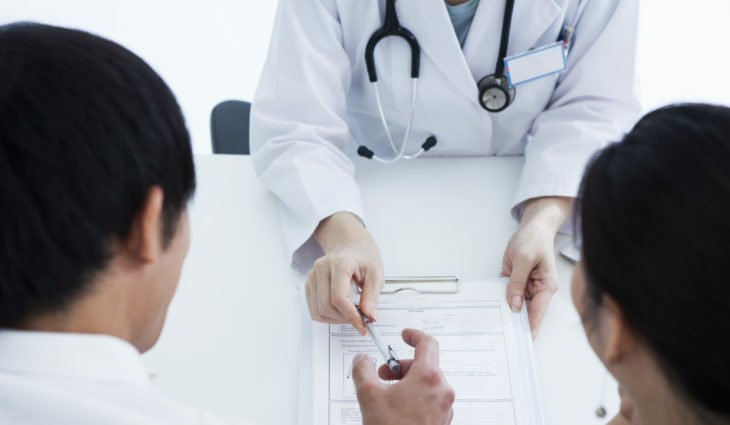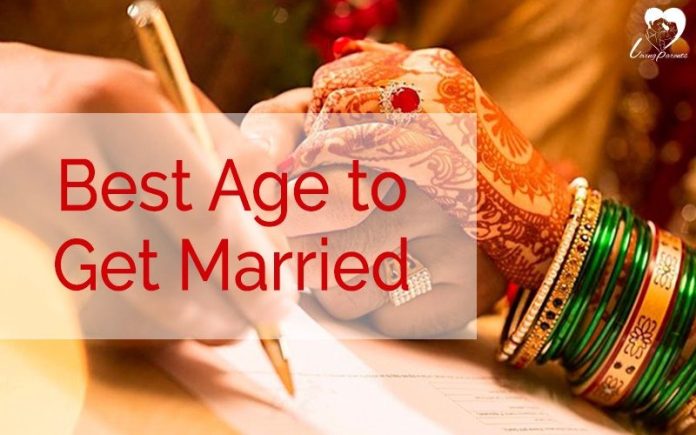Both of these decisions – getting married and having kids – are the two most important decisions of your life. With more and more women evolving and gaining financial independence, the average age of women getting married and having kids has been shifted from the 20s to 30s. If you are also wondering about the best age to get married and have kids, read on.
What is the right age to get pregnant?

The childbearing years of women start from 12 years when they start menstruating and they can bear children till their menstruations stop, which is till menopause. Women are born with all the eggs that they would require throughout their lives, which is approximately 2 million but gradually with age, the quantity and quality of eggs decline. By 35 year of age, you are only left with 25,000 eggs and by 51 with only 51.
Technically, you can have babies till you don’t hit menopause but your age affects your fertility. If you have been trying to get pregnant for the last 3 months, your chances of getting pregnant in the next cycle are:
- 18% if you are 25
- 16% if you are 30
- 12% if you are 35
- 7% if you are 40
As you age, the risk of you contacting diseases like endometriosis and tubal cancer increases which negatively affects fertility. Because of all of these reasons, your childbearing capabilities get affected after the age of 32.
As per the experts, the average age for women to have kids lie between 25 – 35 years of age. As per your reproductive health, these are the best years for you to plan your family.
What are the benefits and risks of getting pregnant at a certain age?
Getting married and having kids in 20s
You must have heard of this piece of advice from everyone – the best age to get married and have kids is when you are in your 20s. You are young and have tons of energy to handle the needs of a growing baby. Scientifically speaking, the younger you are, the better it is for you as well as the health of your baby.
Getting pregnant in your 30s
There are other benefits associated with giving birth to babies at a slightly older age. When you try to get pregnant while being over the 30s, you are mature emotionally and mentally as well as financially. Studies have shown that children born to older parents achieve a better level of education.
Studies have also shown that if you deliver your baby while being around or over 40, you lower your risk of getting uterine cancer.
Also Read: Tips for a healthy pregnancy
Getting pregnant after 35
As mentioned, as you age, the quality of your eggs decline which can affect the chances of you getting pregnant easily. The age also increases your risk of certain diseases while you are pregnant, such as:
- Gestational diabetes
- High blood pressure
- Premature birth
- Stillbirth
- Miscarriage
- Heavy blood loss during delivery
- High chances of delivery via cesarean
- Low birth weight of the infant
When should you see a fertility doctor?

Studies have shown that more than 15% of women struggle with getting pregnant. If you have been facing challenges in getting pregnant, it is a good option to go and meet an infertility doctor who can do certain tests, assess the situation and recommend a fertility treatment, if required. You should see a fertility doctor if:
- You are 35 or younger and have been trying to get pregnant for over a year
- If you are between 35 and 40 and have been trying for more than 6 months
- If you are 40 and above, consult with a fertility specialist before trying to get pregnant
Depending on your age, fertility complications and preferences, some of the fertility options would include:
- Taking drugs to induce ovulation
- Getting the surgery done to fix any uterine condition like fibroids, endometriosis etc.
- Intrauterine insemination where sperms are induced in the uterus during your ovulation period
- In-Vitro fertilization where a formed embryo, created in a lab, is placed in the uterus
- Zygote/Gamete intra-fallopian transfer in which an egg and sperms or an embryo is placed inside your fallopian tubes
Also Read: Most Common Initial Pregnancy Symptoms
Tips to improve your chances of conception
If you are ready to conceive and reproduce, there are certain things that you can do to increase your chances of getting pregnant:
- If you are overweight, reduce your weight and get to a normal BMI. Being overweight affects your hormonal balance thus affecting your reproductive health.
- Eat a healthy diet as a high fat-diet contributes to weight gain and affects your reproductive cycle.
- If you are trying to get pregnant, you should quit smoking. It not only affects the quality of your eggs but also makes you prone to miscarriage if you are already pregnant.
- Limiting alcohol and caffeine or abstaining from alcohol is also a good idea. Consuming alcohol can cause problems in conceiving and could lead to harmful fetal development.
- Before you start trying to get pregnant, visit your doctor and start your treatment to control your medical conditions like diabetes or high blood pressure in control.
Also Read: Most Popular Tips To Conceive Right
The Key Take Away
If you have been wondering about what is the best age to get married and have kids, well here’s the answer: there is no simple or single answer to which is the best age to get pregnant. The best odds and average age for women to have kids for you to start trying are between the 20s and 30s. Before trying to get pregnant, make sure that you are mentally, physically and financially ready as well.
